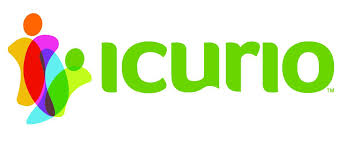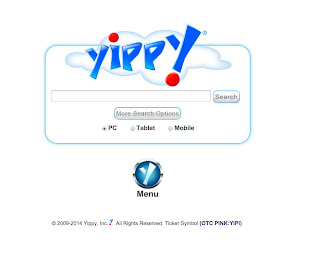First up this week was Seven Essential Elements for Project-Based Learning by John Larmer and John R. Mergendoller. Larmer and Mergendollar say, "A project is meaningful if it fulfills two criteria. First, students must perceive the work as personally meaningful, as a task that matters and that they want to do well. Second, a meaningful project fulfills an educational purpose. Well-designed and well-implemented project-based learning is meaningful in both ways." This page taught me about how to structure project-based learning lessons as a teacher. We have already made one lesson, and I got some idea of it, but I really felt like I had no idea what I was doing. This website help me clearly see the difference between doing projects and learning through projects, something every teacher who wants to use project-based learning must realize. This not only teaches us how to present project-based learning as teachers, but it also presents how to make learning meaningful to the students.
Seven Essential For Project-Based Learning:
1. A Need to Know
This is the entry event for every PBL lesson plan. Without a need to know, students do not feel compelled to truly learn in the project. They are doing it for a good grade or because it will be on the test, not because they want to take up the challenge of learning about something.
2. A Driving Question
This gives the project a clear purpose. This should not be a question with a simple answer. Higher level critical thinking should be evoked through this questions. It can be abstract or concrete, but it should always drive the students to do some serious thinking.
 3. Student Voice and Choice
3. Student Voice and ChoiceThis makes the project feel meaningful to students. If a project does not feel meaningful, the students will not want to learn or take up the challenge of answering the driving question.
4. 21st Century Skills
This one was not knew to me. We have already learned quite a bit about building these skills in our future students. These skills are essential for being successful in this technological world.
5. Inquiry and Innovation
This drives students to form new questions on their own. Since questions are the basis of all learning, these students are truly using their skills to become better learners. With new inquiries come new answers. Instead of finding someone else's answer in a book or online, students can come up with their own answers when they begin asking new questions.
 6. Feedback and Revision
6. Feedback and RevisionThese two are very important to the learning process. Students must learn that the first time something is done, it probably isn't of the highest quality. We are always revising things, not just in school. Revision is a part of life, and feedback must be taken and used to improve what we are doing.
7. A Publicly Presented Product
When students realize that their work is going to be seen outside of the classroom, the work they does tends to be of much higher quality. Higher quality work is typically a product of higher quality learning.
Next up was the video Project Based Learning for Teachers by Tony Vincent. This video emphasizes Project Based Learning's ability to utilize technology and make students the center of their own learning. It addresses the need for a driving question, an audience, and extended amounts of time for students to work. According to the video, "Common Core Standards are the What", and "Project Based Learning is the How." This really struck me as something new and important. We have learned about both Common Core and PBL, but until now, I had not consciously seen them this way. When putting together our first lesson plan, obviously this is what we did. We used a project based learning lesson plan to achieve certain standards. I just really enjoyed the way Tony put this into perspective for me.
In the video, What Motivates Students? by Suzanne Ball, Suzanne conducts real interviews with students to answer these questions. She asked these two questions, and underneath are the answers she received:
What Motivates You To Do Good In School?
- pointing out you did well, recognizing the effort, makes you feel accomplished
-looking to the future, good job one day
-good grades for college and a degree for a future job
-success
-parent approval, extracurricular activities, avoid punishment
Rewards That Work:
-surprises, eating lunch with teacher, classroom money, charts to keep track, money for stores-combining money
-candy, outside, work outside, music monday etc.
-food, school supplies (cool pencils), stickers
-brownie points
This video showed how students perceive their own progress in school. By knowing how students feel when they are complimented and why they want to do well in school, we as teachers can really focus on how to better our students. How to enhance our students learning in general is highly based upon the students themselves. Trying to further a child's education is a hard battle to win when they are not motivated or do not feel that their work is significant. By looking at these two questions and their answers, we can learn not just about Project Based Learning, but learning altogether.
Ten Sites Supporting Digital Classroom Collaboration in Project Based Learning can be found on Michael Gorman's blog. If you want some amazing sites for PBL, then check these out. Some of them are most definitely going in my bookmarks for later use. These websites taught me how broad Project Based Learning really is. There is some technological advancement for every aspect of learning that you could imagine, and if you can think of something there isn't a website for, I'm sure there will be one for it soon. These websites are great for motivating students to use technology instead of playing with it:

1. Titan Pad
2. Wall Wisher
3. Corkboardme
4. Google Docs
5. Microsoft Live
6. Today's Meet
7. Will You Type With Me
8. Linoit
9. Skype in Education
10. Quick Screen Share
Lastly, I looked at the story of Two Students Solve the Problem of Watery Ketchup by Designing a New Cap by journalist Lindsey Foat. This is the story of two seniors at North Liberty High School who both had one thing in common, ketchup. Together, the two boys used their school's technological capabilities to design and 3D print a new design for ketchup tops. This article is a great example that student motivation and engagement has the power to create wonderful products if the students are just given the opportunity to create something meaningful. The boys said they always started their projected with the phrase "It really bugs me when..." It may not be a driving question, but it surely does provoke critical thinking. This article shows that obviously, Project Based Learning can be extremely fun.
"But it is the process of students' learning and the depth of their cognitive engagement— rather than the resulting product—that distinguishes projects from busywork."-John Larmer and John R. Mergendoller



.jpeg)
.jpeg)

.jpeg)

.jpeg)









.jpeg)



















